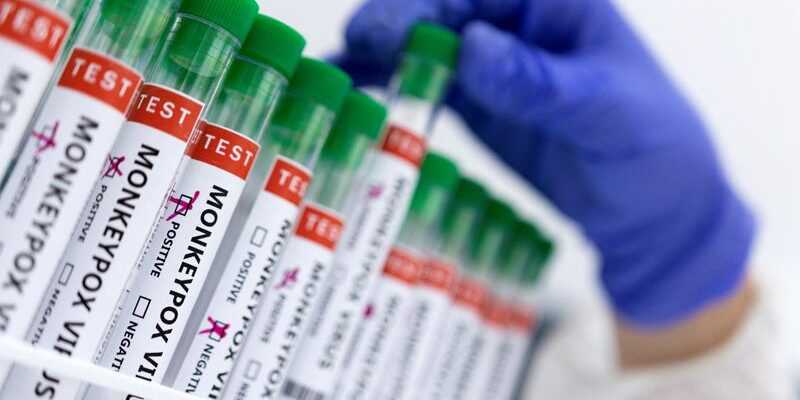They argue that governments and the World Health Organization should not repeat the early missteps of the COVID-19 pandemic that delayed case detection, thus furthering the spread of the virus.
While monkeypox is not as transmissible or dangerous as COVID, these scientists say, there needs to be clearer guidance on how someone infected with monkeypox should self-isolate, more explicit guidance on ways to protect those at risk, and improved testing and contact tracing.
“If it becomes endemic (in other countries), we will have another unpleasant disease and many difficult decisions to make,” said Isabelle Eckerle, a professor at the Geneva Center for Emerging Viral Diseases in Switzerland.
The WHO is considering whether the outbreak should be assessed as a potential public health emergency of international concern (PHEIC), an official told Reuters. A determination by the WHO that an epidemic constitutes a global health emergency – as it did with COVID or Ebola – would accelerate research and funding to contain a disease.
“It’s still being studied, but not yet an emergency committee (on monkey pox),” said Mike Ryan, director of the WHO’s health emergencies programme, on the sidelines of the annual meeting of the WHO. Geneva agency.
However, according to experts, the WHO is unlikely to come to such a conclusion soon, as monkeypox is a known threat against which the world has tools to fight. Discussing whether to set up an emergency committee, the body that recommends declaring a PHEIC, is simply part of the agency’s routine response, according to WHO officials.
Ms Eckerle asked that the WHO encourage countries to put in place more coordinated and stricter isolation measures, even without an emergency declaration. She worries that saying the virus is benign, along with the availability of vaccines and treatments in some countries, “potentially leads to lazy behavior by public health authorities.”
NOT THE SAME THING AS COVID
Over 300 suspected and confirmed cases of monkeypox, a usually mild disease that is spread by close contact, causing flu-like symptoms and a characteristic rash, have been reported this month.
Most have taken place in Europe rather than in central and western African countries where the virus is endemic. No deaths have been reported in the current outbreak.
However, global health officials have expressed concern over the rising epidemic in non-endemic countries. The WHO said it expects the numbers to rise as surveillance intensifies.
Angela Rasmussen, a virologist at the University of Saskatchewan in Canada, wrote on Twitter that monkeypox is different from SARS-CoV-2, the novel coronavirus, but “we are making some of the same mistakes when it comes to the decisive answer with the tools arrangement.”
On Friday, the WHO reaffirmed that the monkeypox virus can be contained through measures including rapid detection and isolation of cases and contact tracing.
Those infected – and in some cases their close contacts – are advised to self-isolate for 21 days, but it’s unclear to what extent people would adhere to such a long period away from work or other commitments. The ability of laboratories to test for monkeypox is not yet widely established, Eckerle said, which means rapid diagnosis can be difficult.
Mass vaccination is not considered necessary, but some countries, including Britain and France, offer vaccines to healthcare workers and close contacts.
Other experts say the current response is proportionate and that considering monkeypox a global health emergency and declaring a PHEIC would be inappropriate at this stage.
“This is reserved for threats with the highest level of risk based on infectivity, severity and international risk of escalation,” said Dale Fisher, president of the Global Alert and Response Network. of Epidemics (GOARN) and professor of medicine in Singapore.
Beyond labels, experts said the most important lesson of the past two years is that it is too late to prevent pandemics once they have started to spread.
“It’s always disappointing that the world only wakes up to a new disease when it hits high-income countries,” said Piero Olliaro, professor of poverty-related infectious diseases at Oxford University and monkeypox expert. .
To prepare for pandemics, “you have to do it where the diseases are now”, he added.
< ^^^^^^^^^^^^^^^^^^^^^^^^^^^^^^^^^^^^^^^^^^^^^^^ ^^^^^^^^^^
FACTBOX-Countries offering monkeypox vaccine
FACTBOX-Monkey pox cases around the world
EXPLAINING-How much to worry about monkeypox?
EXPLAINER-What are the vaccines, the treatments we have to fight monkeypox?
EXPLAINING-What is on the agenda (and off the agenda) of the WHO Assembly?
^^^^^^^^^^^^^^^^^^^^^^^^^^^^^^^^^^^^^^^^^^^^^^^^ ^^^^^^^^^>
